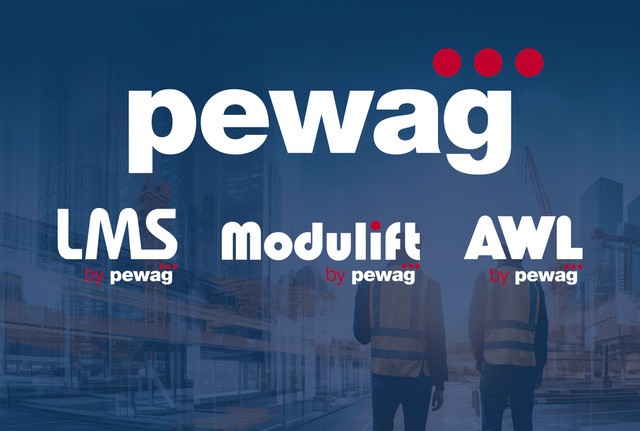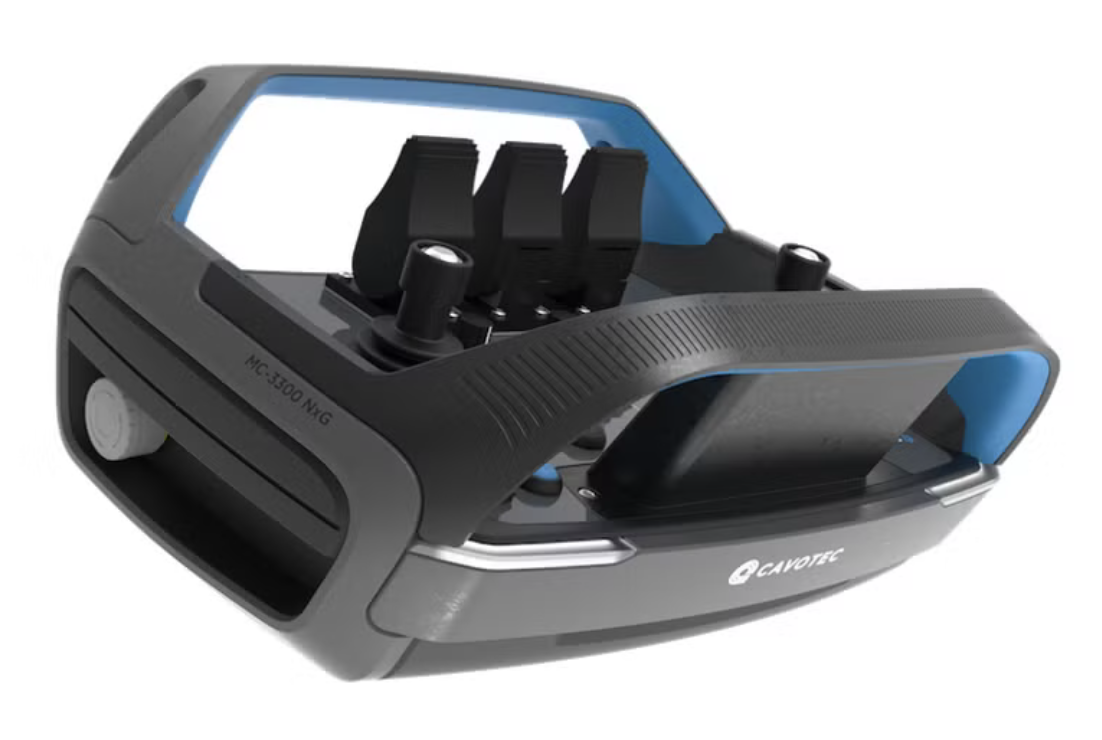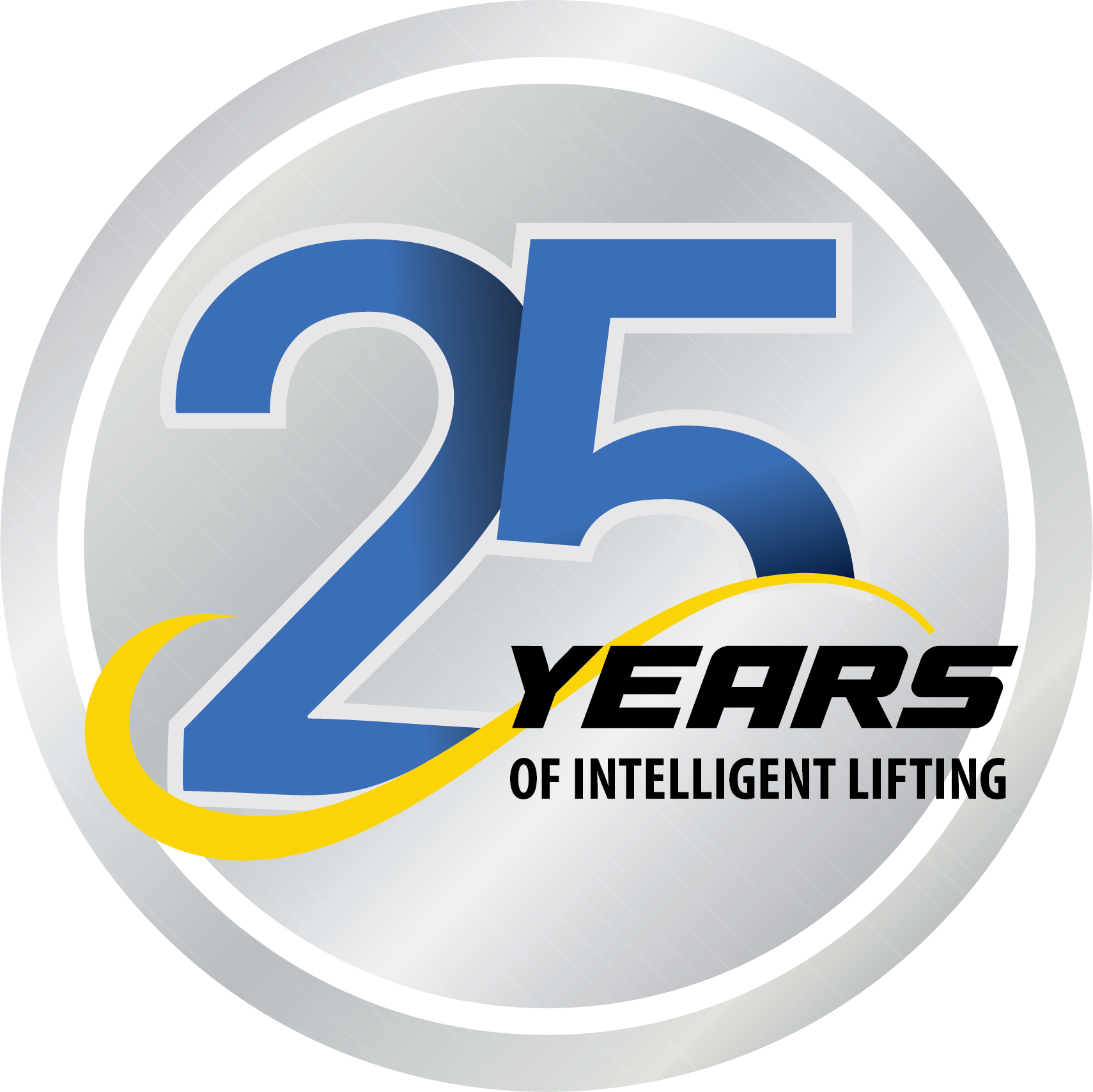YOKE Issues Digital Product Passports, Supports ESPR
YOKE Industrial Corp.’s complete range of lifting and rigging products are now equipped with Digital Product Passports (DPP), as industry conforms to the European Union’s Ecodesign for Sustainable Products Regulation (ESPR).
YOKE’s expansive catalogue includes Grade 80 and Grade 100 lifting chain fittings; swivel hoist hooks; shackles; angular contact swivels; wire rope clips; and lifting points. It integrates radio frequency identification (RFID) chips within every item, allowing end users to utilise a DPP throughout the product lifecycle — and much more.
A DPP is a data management tool that records a product’s lifecycle information, including material composition, energy performance, maintenance guidelines, and recycling methods. A DPP, therefore, promotes compliance and transparency, while improving resource efficiency and supporting circular economy goals.
It is less than two years until everyone is expected to be working to the EU Machinery Regulation and the Machinery Directive 2006/42/EC is repealed. One of the most significant changes is the inclusion of original certification and manuals to be supplied digitally with products.
In the meantime, the ESPR aims to significantly improve the sustainability of products placed on the EU market by enhancing their circularity, energy performance, recyclability, and durability. Effective last year, it replaced the Ecodesign Directive 2009/125/EC and established a framework for setting eco-design requirements on specific product groups. It expands the Ecodesign Directive to cover virtually all physical products; and reinforces the range of eco-design requirements that can be set.
YOKE has campaigned for RFID and Software as a Service (SaaS) to be more widely utilised by the lifting industry for many years — and remains dedicated to simplifying and digitalising the processes around compliance and traceability for equipment management. While regulations are now giving momentum to much wider acceptance, YOKE is ahead of the curve.
Steven Hong, president at YOKE, said: “We fully support the ESPR, as these regulations align with the four core principles of the RiConnect Compliance Management System: Compliance, Traceability, Status, and Net Zero [CTSN].”
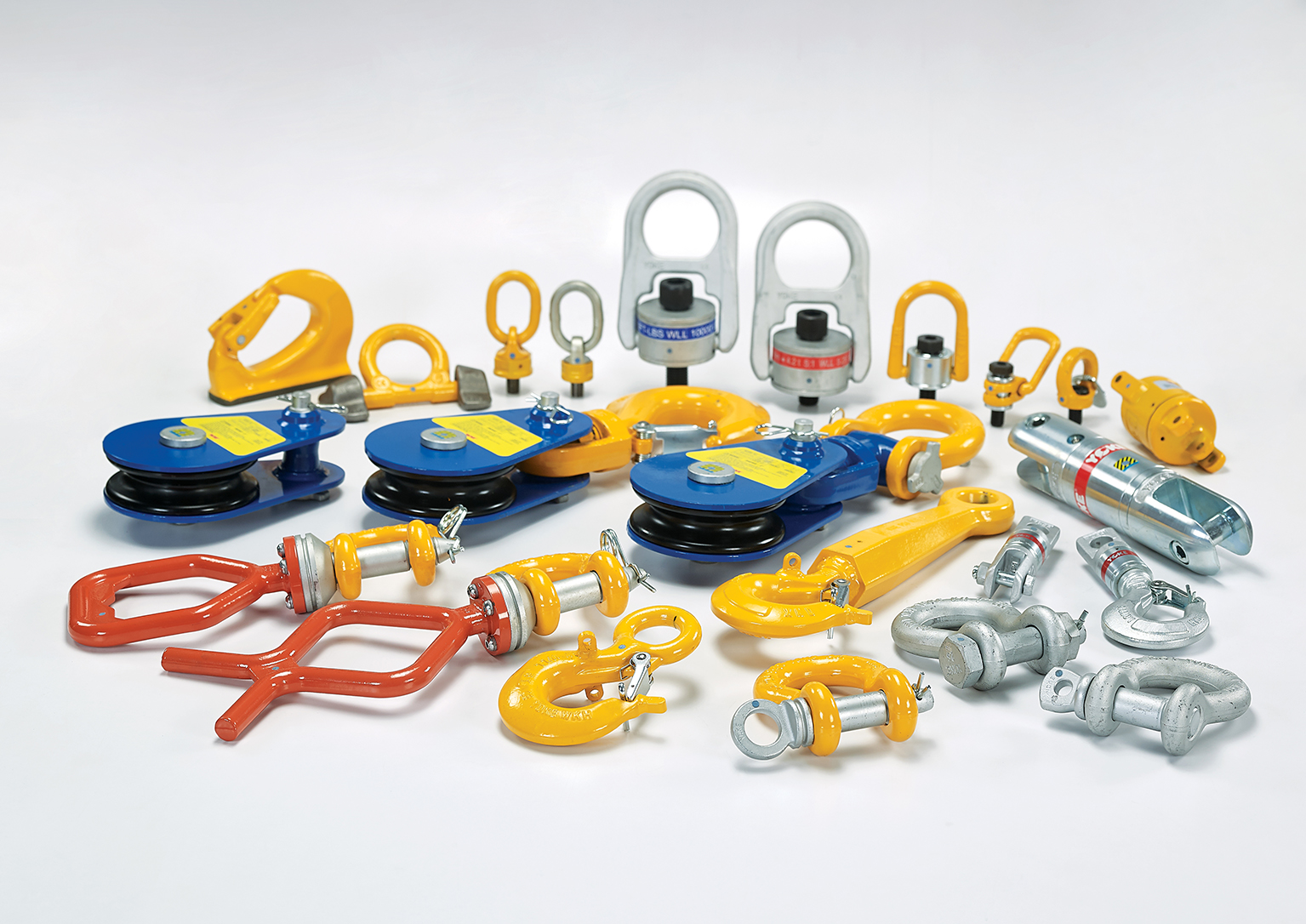
YOKE’s entire product line has been integrated with radio frequency identification (RFID) chips.
NFC RFID chips
Owing to the work YOKE has done with Near Field Communication (NFC), today, every user with a mobile phone capable of paying a bill now also has the ability to check a component for identity and safe use. Importantly, the DPP function doesn’t require an app — only proximity between product and smart device. However, the app has functions way beyond those related to DPP, such as totally paperless asset management, compliance documents, and pre-use checks.
Hong added: “The lifting industry is a highly mature and conservative market, making it difficult to accept new technology. Due to high cost and a lack of familiarity with the advantages of digital information, the gap between traditional industries and cutting-edge technology has deepened. However, NFC RFID chips are opening the door to digital technology for global partners and manufacturers, reversing the old mindset.”
Each YOKE product receives a unique DPP at the point of manufacture, allowing users to access complete product information at any time. The app, meanwhile, provides different modules — such as Manufacturer and Hosting — that offer additional asset compliance management functions. This flexibility allows for comprehensive tracking, monitoring, and enhanced management of assets, ensuring seamless integration of digital protection and regulatory compliance for the entire lifecycle.
SupraNano NFC RFID chips can be pressure-fitted directly into steel or retrofitted to snatch blocks and other products using tags. YOKE’s branded BlueSupra tags are put through a series of tests covering impact and wear, while the SupraNano is subjected to rigorous temperature (-30 / +125 degrees C) and water ingress (6,000m subsea) tests. Further tests are based on the criteria of MIL-STD 810H (U.S. military standard); IP68 waterproof rating; IK10 impact testing; ATEX explosion-proof environmental testing; and CRES corrosion resistance.
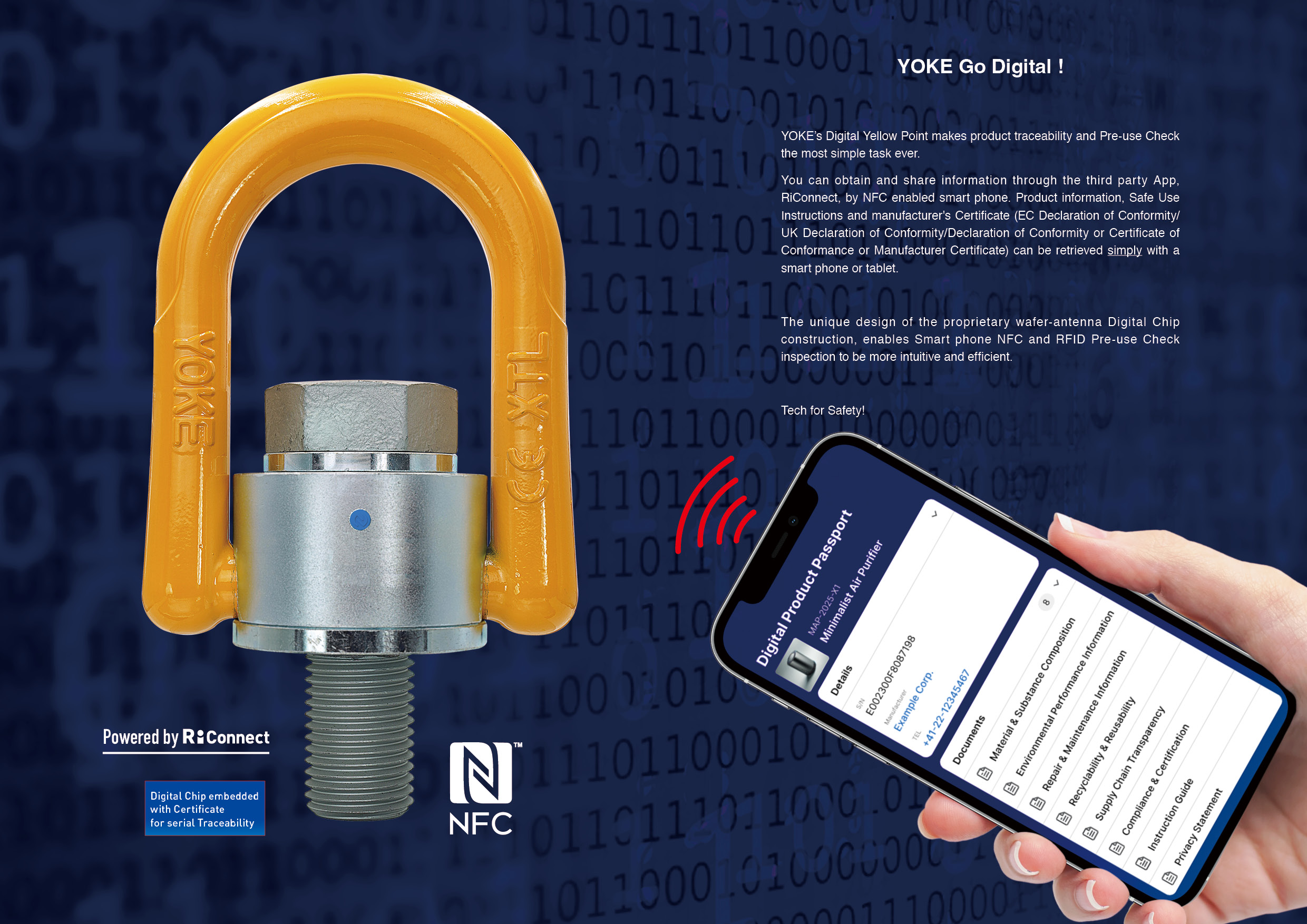
YOKE’s Digital Product Passport (DPP) interface.
YOKE’s Hong added: “Not only is technology enabling industry to conform to guidance, but it is also moving us away from traditional hard labels, which present many issues, such as difficulty in updating, poor accuracy, and being affected by wear or fading, making it hard to keep up with fast-changing market needs.
“In contrast, technology provides more accurate data, better transparency, can be updated anytime, and remote tracking, without being impacted by the environment. This change not only improves data management efficiency but also reduces resource waste, supporting the goals of a modern circular economy and sustainable development.”


